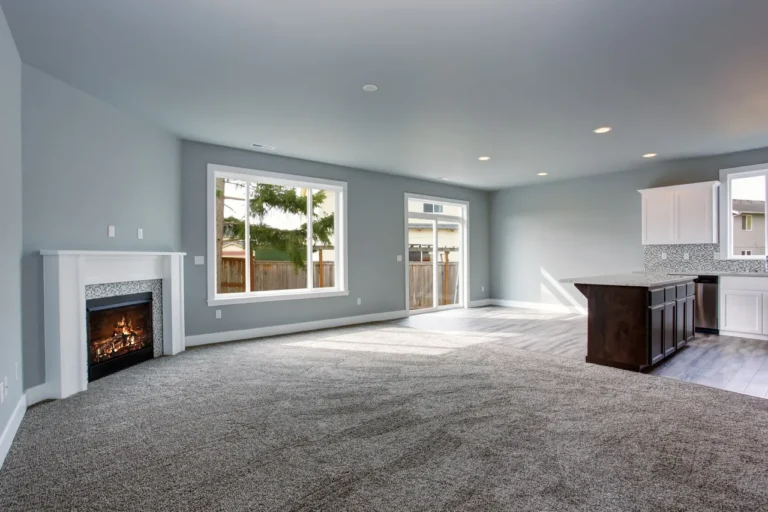In the realm of rental properties, both landlords and tenants must navigate a complex landscape of laws and regulations. Unfortunately, illegal property management practices can undermine this relationship, creating conflicts that can lead to severe consequences for both parties. Understanding what constitutes illegal practices is essential for fostering a healthy rental environment and ensuring compliance with legal obligations.
Understanding Illegal Property Management Practices
Illegal property management practices refer to actions taken by landlords or property managers that violate tenant rights or applicable laws. These practices can lead to significant legal repercussions, financial losses, and damage to a landlord’s reputation. Recognizing and addressing these issues is essential for maintaining a lawful and equitable rental market.
Illegal practices can manifest in various ways, including:
- Discriminatory Practices: Refusing to rent to individuals based on race, religion, gender, or other protected characteristics.
- Neglecting Repairs: Failing to maintain a property in a habitable condition.
- Unlawful Termination of Leases: Evicting tenants without following legal procedures.
Understanding these practices is crucial for both landlords and tenants to ensure a fair and lawful rental experience. When landlords engage in illegal practices, it can create unsafe living conditions and foster a culture of mistrust, affecting not only individual tenants but also the broader community.
What Are the Legal Frameworks Governing Property Management?
Property management is governed by a variety of legal frameworks that can vary significantly from state to state. One of the most important federal laws is the Fair Housing Act, which prohibits discrimination in housing based on race, color, religion, sex, national origin, familial status, and disability. This law plays a fundamental role in ensuring that all individuals have equal access to housing, free from discriminatory practices.
In addition to federal laws, each state has its own landlord-tenant laws that outline the rights and responsibilities of both parties. These laws cover a wide range of issues, including:
- Lease Agreements: Guidelines on what should be included in a lease.
- Eviction Procedures: Legal requirements for evicting tenants.
- Security Deposits: Regulations governing how security deposits should be handled.
- Maintenance Obligations: Requirements for landlords to maintain habitable living conditions.
For example, in California, Civil Code Section 1942 grants tenants the right to make necessary repairs and deduct the costs from their rent if landlords fail to address issues in a timely manner. Familiarity with these laws helps landlords navigate property management effectively and avoid illegal practices.
Top 10 Illegal Property Management Practices
1. Retaliatory Actions Against Tenants
Retaliation against tenants for exercising their rights is one of the most serious illegal practices. For instance, if a tenant reports a safety issue, and the landlord retaliates by increasing the rent or attempting to evict the tenant, this could constitute illegal retaliation. Legal repercussions can include lawsuits and financial penalties for landlords found guilty of such actions.
2. Unlawful Evictions
Evicting a tenant without following the legal process is a significant violation. Landlords must provide proper notice and follow the correct legal procedures based on state laws. For example, if a landlord tries to forcibly remove a tenant without obtaining a court order, they can face severe legal consequences. Understanding the eviction process is crucial to avoid illegal actions.
3. Neglecting Property Maintenance
Landlords have a legal obligation to maintain properties in a safe and habitable condition. Failing to address necessary repairs, such as broken heaters or plumbing issues, can lead to lawsuits and claims for damages. For example, if a tenant suffers health problems due to mold caused by a landlord’s neglect, the landlord could be held liable.
4. Entering Rental Properties Without Notice
Landlords are typically required to provide reasonable notice—often 24 hours—before entering a tenant’s property, except in emergencies. Entering without notice can violate tenant privacy rights and lead to legal action. For instance, if a landlord enters a tenant’s unit without permission to check on conditions, it could be seen as harassment.
5. Mismanagement of Security Deposits
There are strict regulations governing how security deposits should be handled. Landlords must return deposits within a specified timeframe and provide an itemized list of any deductions. Failure to comply can lead to legal actions and loss of the deposit itself. For example, if a landlord unjustly keeps a security deposit without valid justification, they may face a lawsuit.
6. Illegal Rent Increases
Most jurisdictions have laws governing how and when rent can be increased. Landlords cannot increase rent mid-lease without proper notice and justification. For instance, if a tenant receives a rent increase without a 30-day notice, that action is likely illegal. Familiarity with local laws regarding rent control can help landlords avoid such violations.
7. Failure to Conduct Required Inspections
Landlords are often required to perform regular inspections to ensure that the property meets safety and health standards. Neglecting these inspections can lead to dangerous living conditions and legal repercussions. For example, if a landlord fails to inspect for lead paint in an older building and a tenant suffers health issues as a result, the landlord may be held liable.
8. Misuse of Late Fees
While landlords may charge late fees for overdue rent, these fees must be reasonable and clearly outlined in the lease agreement. Excessive late fees can be considered illegal. For example, charging a flat fee of $100 for every day rent is overdue could be seen as punitive rather than compensatory, exposing landlords to legal challenges.
9. Violating Tenant Privacy Rights
Tenants have the right to privacy in their rented homes. Landlords cannot disclose a tenant’s personal information or enter their property without proper notice, except in emergencies. For instance, sharing tenant information with third parties without consent is a violation of privacy laws.
10. Unlawfully Changing Lease Terms Mid-Lease
Landlords cannot unilaterally change the terms of a lease agreement once it has been signed. For example, if a landlord decides to change the pet policy or increase security deposit requirements without mutual agreement, such actions could be deemed illegal. Ensuring that any changes are mutually agreed upon and documented is crucial.
Consequences of Illegal Practices
Engaging in illegal property management practices can have severe consequences for landlords and property managers, including:
- Fines and Penalties: Landlords may be fined by state agencies or local governments for violations of housing laws, leading to financial strain.
- Lawsuits: Tenants may file lawsuits against landlords for illegal practices, resulting in costly legal fees and potential settlements. For example, if a tenant successfully sues a landlord for unlawful eviction, the landlord may have to pay damages, including back rent and legal costs.
- Loss of Rental License: In some jurisdictions, repeated violations can lead to the revocation of a landlord’s rental license, effectively putting them out of business. This can severely impact their ability to generate income.
- Reputation Damage: Negative publicity resulting from lawsuits or complaints can harm a landlord’s reputation, making it difficult to attract future tenants. A damaged reputation can also lead to higher vacancy rates and lower rental prices.
Understanding these potential consequences underscores the importance of adhering to legal practices in property management. A proactive approach to compliance can save landlords from costly repercussions.
How to Avoid Illegal Property Management Practices
Stay Informed About Local Laws
Landlords should regularly review local landlord-tenant laws to ensure compliance. Keeping up-to-date with changes in legislation helps prevent accidental violations. Engaging with local real estate organizations or attending workshops can be beneficial for landlords to stay informed.
Implement Clear Communication Channels
Establishing clear communication with tenants can help prevent misunderstandings and disputes. Regular check-ins, open lines of communication, and providing tenants with clear written policies can foster a positive landlord-tenant relationship. For instance, landlords might send out newsletters or updates about property changes or policies to keep tenants informed.
Keep Accurate Documentation
Maintaining thorough records of all tenant interactions, repairs, and financial transactions can protect landlords in case of disputes. Proper documentation is invaluable during legal proceedings and can serve as evidence of compliance with laws. Keeping digital records can facilitate easy access and organization.
- Right to Safe Living Conditions: Tenants have the right to live in a property that meets health and safety standards. This includes adequate heating, plumbing, and absence of pests.
- Right to Privacy: Tenants cannot be evicted without proper notice or entry without consent. They are entitled to enjoy their rented space without unwarranted intrusion.
- Protection Against Retaliation: Tenants are protected from retaliation for exercising their rights, such as filing complaints about unsafe conditions. This protection encourages tenants to speak up without fear of retribution.
Being informed about these rights can empower tenants to take action when faced with illegal practices. Engaging with local tenant organizations can also provide additional support and resources.
How to Handle Complaints Against Property Management
If tenants believe their rights are being violated, they can take several steps to address the issue:
- Document the Issue: Tenants should keep a detailed record of the problem, including dates, times, and any correspondence with the landlord. This documentation will be crucial if the situation escalates.
- Communicate with the Landlord: Attempt to resolve the issue directly with the landlord or property manager through formal communication, such as email or a written letter. Clear communication can sometimes resolve misunderstandings before they escalate.
- Contact Local Tenant Advocacy Groups: Many cities have tenant advocacy organizations that provide guidance and support for tenants facing issues with landlords. These groups can help tenants understand their rights and the steps they can take.
- File a Complaint: If the issue remains unresolved, tenants can file a complaint with local housing authorities or consider legal action. Many jurisdictions have specific processes for lodging complaints against landlords.
- Seek Legal Advice: In cases of severe violations, consulting with an attorney who specializes in landlord-tenant law can help tenants understand their options. Legal professionals can provide guidance on the best course of action and represent tenants in court if necessary.
Resources for Landlords and Tenants
Several resources are available to assist both landlords and tenants in navigating property management laws:
- Local Housing Authorities: Many municipalities have housing authorities that provide information and resources regarding tenant rights and landlord obligations. They often have educational programs and materials available.
- Tenant Unions: These organizations advocate for tenant rights and can provide support for those facing illegal practices. Joining a tenant union can give tenants a collective voice in advocating for their rights.
- Legal Aid Organizations: Many areas offer legal aid services for low-income tenants seeking assistance with disputes against landlords. These organizations can provide free or low-cost legal representation.
- Online Resources: Websites like the U.S. Department of Housing and Urban Development (HUD) provide valuable information about federal housing laws and resources. Online platforms often offer guides and FAQs that can help both landlords and tenants navigate their rights and responsibilities.
Frequently Asked Questions (FAQs)
What should I do if I suspect my landlord is violating my rights?
Document any incidents or communications with your landlord and consult local tenant advocacy groups for guidance. If necessary, consider legal action based on the severity of the violation.
How can I prepare for a legal dispute with my landlord?
Gather all relevant documents, including your lease agreement, records of communication, and evidence of the alleged violations. Consulting with a legal professional can provide additional support and strategy.
What are the penalties for property managers who engage in illegal practices?
Penalties can vary by jurisdiction but may include fines, lawsuits, loss of rental licenses, and damage to reputation. Engaging in illegal practices can also lead to increased scrutiny from regulatory bodies.
Conclusion
Understanding illegal property management practices is vital for both landlords and tenants. By recognizing and adhering to legal obligations, landlords can avoid serious repercussions while providing safe, fair housing. Tenants, on the other hand, should be aware of their rights and protections to ensure a positive rental experience.
With a commitment to legality and fairness, both parties can foster a respectful and lawful landlord-tenant relationship. Ultimately, creating a harmonious rental environment not only benefits individual landlords and tenants but also contributes to the health of the entire rental market. By working together and upholding legal standards, landlords and tenants can ensure a stable and equitable housing landscape for all.
Ready to Maximize Your Property’s Potential?
Let us handle the day-to-day operations while you enjoy hassle-free ownership. From tenant relations to maintenance, we’ve got it covered. Contact Us! Today to learn more about our property management services!
Join our franchising program and learn how to become a successful property manager. We provide all the training and support you need to build your business. Learn More About Franchising Opportunities and take the first step today!
Share this post:





